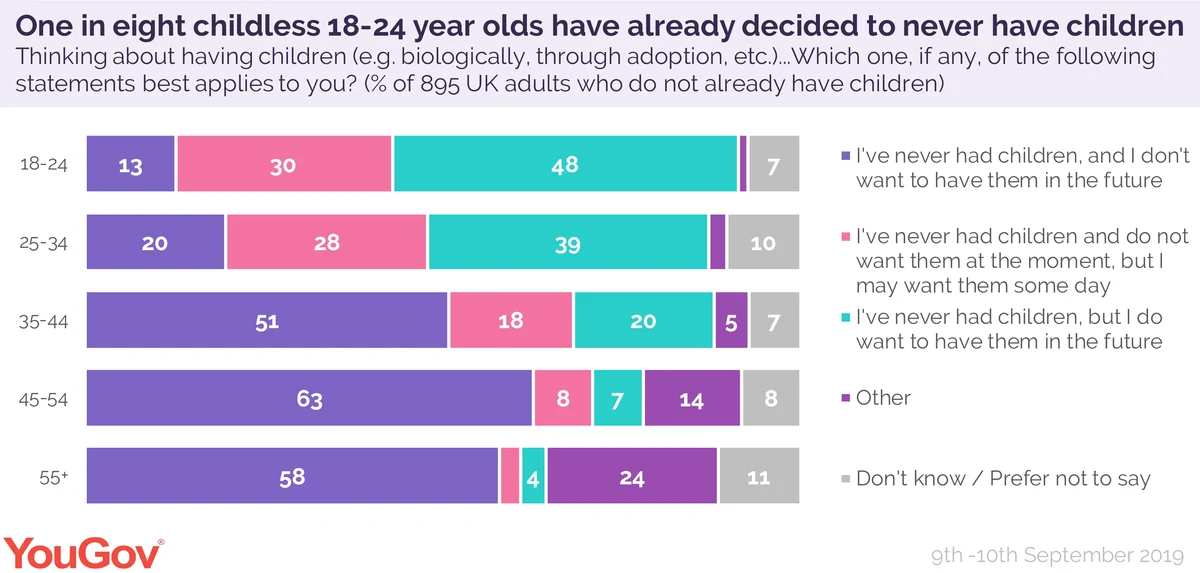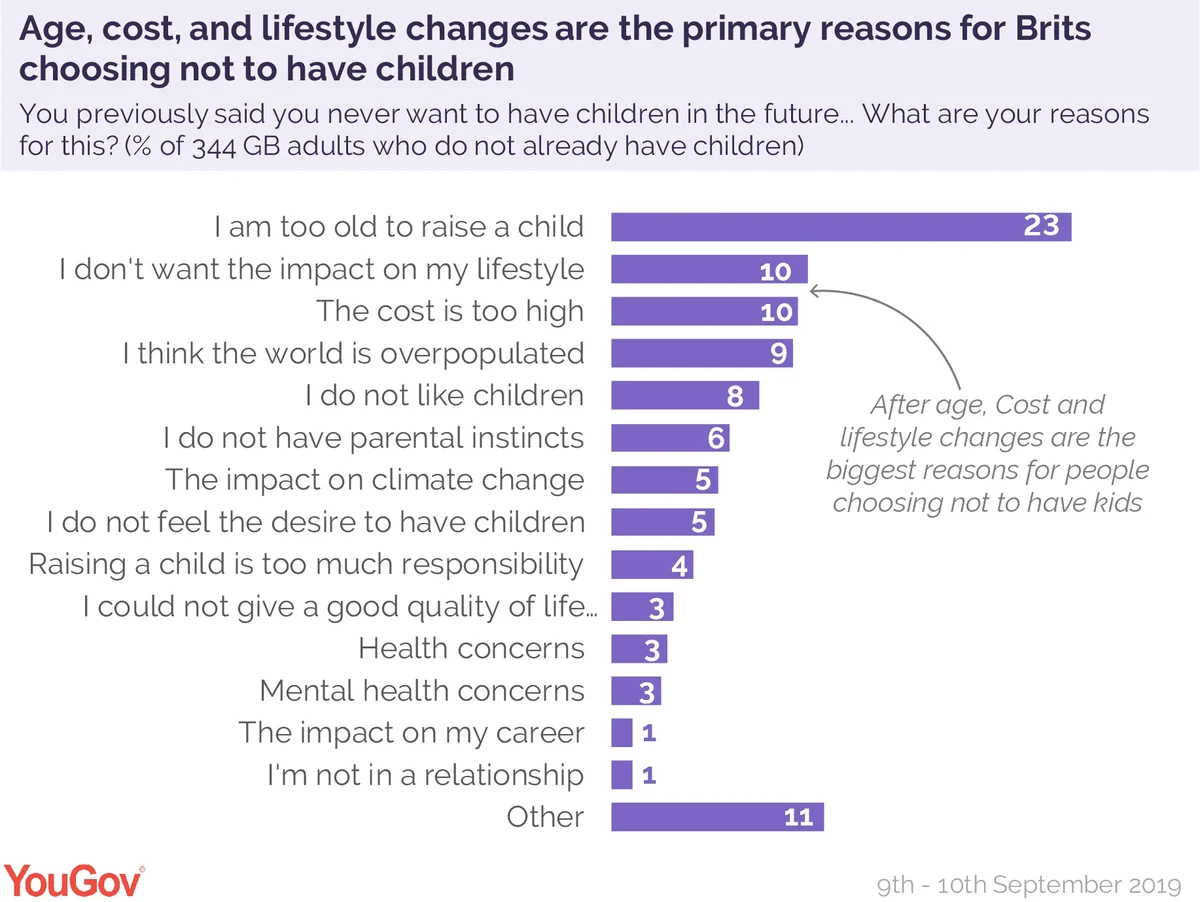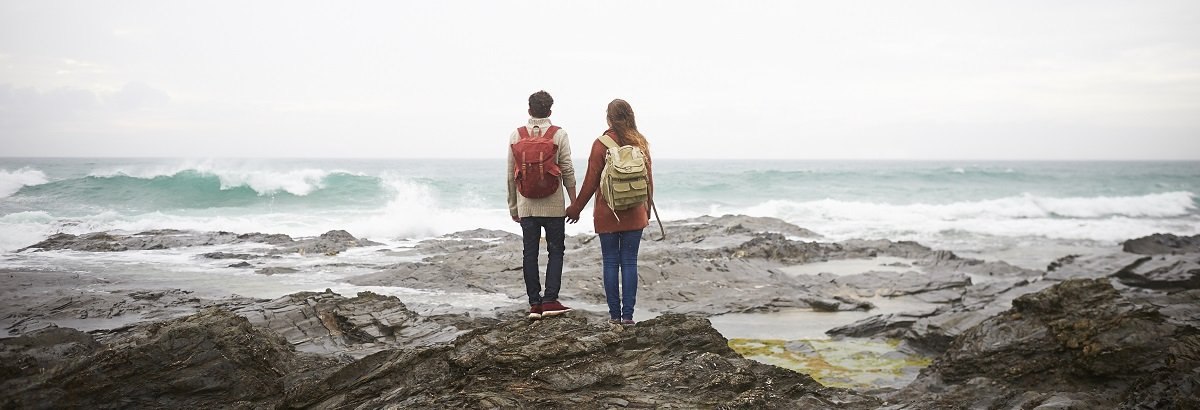One in eleven childless Britons are concerned about overpopulation, and similar numbers are put off raising a family by the cost and impact on their lifestyle
Many people dream of settling down and starting a family, but for some, the idea is much less appealing.
Of Britons who are not already parents, over a third (37%) say that they never want to have children, and a further 19% say they don’t want children any time soon, but acknowledge that they might change their minds.
That compares to a quarter (26%) who do want to have children one day.

One in eight (13%) Brits between the ages of 18 and 24 who are not already parents say they don’t ever want to have kids, and another 30% say they don’t want children currently but might be open to having children at some point in the future. Just under half (48%) say they definitely do want to have children one day.
Looking at older age groups shows increasingly galvanised opinions. Half (51%) of Britons aged between 35 and 44 who are not already parents said they don’t want children at all, while just 18% say they don’t want children either but would be open to changing their minds.
The most common reason of all for not wanting children was age, with 23% of childless Brits saying they think they are too old to raise a child even if they wanted to.

Outside of age, 10% of childless Britons say the high cost involved in raising a child, as well as the inevitable lifestyle changes, are what makes them remain childless.
The biggest percentage point split between the genders came down to costs as well, with men currently without children more likely to be worried by the cost of having a child at 12% compared to 7% of women.
Nearly one in eleven (9%) adults who don’t have kids say they were concerned that the planet is already overpopulated and 5% say they worried about the impact having children would have on climate change and the environment.
Image: Getty











